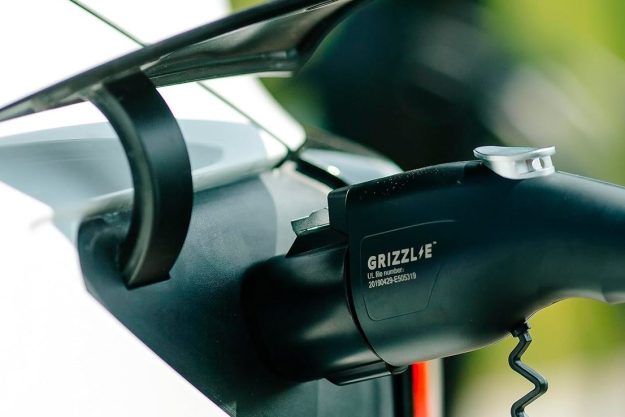Honda seems pretty confident about the new Civic Type R, and with good reason. With 305 horsepower coming from its turbocharged VTEC engine, the car is the most powerful Civic ever, and it’s the fastest front-wheel drive production vehicle to tackle the Nurburgring.
Now, it has its sights set on the 2015 British Touring Car Championship (BTCC).
Honda has announced that a track-ready version of the hatch will compete under the Honda Yuasa Racing banner this year, and the team is currently finishing final prep work alongside Honda UK at the Team Dynamics workshops in Worcestershire, England.
The Type R’s 2.0-liter four-pot has been boosted to 350 horsepower for the competition, and the car equips a wide body kit, aggressive rear wing, and racing suspension to match. The Worcestershire team has also stripped out the interior and added a multi-point roll cage.
The vehicle will be fully unveiled March 24th at the BTCC Season Launch in Donington, where it will boast the ornately-colored racing livery that is absent from the development photos above.

Last year, Honda Yuasa utilized a modified version of the Civic Tourer (right) in the BTCC.
“We cannot wait for the new season to start,” said Honda Yuasa Racing Technical Director Barry Plowman. “Our car for 2015 is going to win races. The shape of the new road going Civic Type R has allowed the team to build on the design and take it forward to be a championship winning car.”
“The Civic Type R is an iconic car,” added Honda Yuasa driver and 2012 BTCC Champion Gordon Shedden. “We are champing at the bit to get this distinctive, aggressive looking car out on the track. It’s going to stand out and cause a real stir on the track. Especially when we clean up in the championship!”


